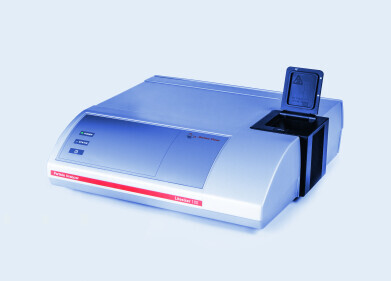Laboratory Products
5 of the Biggest Drug Discoveries
Mar 13 2021
The advancement of the pharmaceutical industry has saved countless lives and generated untold sums in revenue over the years. Now, as the technology behind drug discovery and development continues to evolve and automating for multi-omics workflows for drug discovery and toxicology becomes increasingly common, the sky is the limit when it comes to treating and preventing illnesses and diseases that afflict people the world over. But which are the most important drug discoveries to date? Here are five which have had an outsized impact on populations around the globe.
Anaesthesia
The first known anaesthesia was discovered by Sir Humphry Davy in 1799, as he wrote about how nitrous oxide (colloquially known as laughing gas) could be used to numb the body prior to an operation. It wasn’t until the 1840s that ether (discovered by William T G Morton) and chloroform (refined by James Young Simpson) were used on humans and both have helped to ease the pain and thus greatly facilitate surgery on millions of patients.
Aspirin
Aspirin was originally developed by a German chemist named Felix Hoffman in 1897 as a means of treating his father’s rheumatism. However, as drug discovery and development has changed over the years, scientists are now aware that aspirin has much greater properties than simply pain-relieving ones. As well as its powerful analgesic impact, aspirin is also a strong anti-inflammatory that is even thought to reduce the risk of heart disease and some types of cancer.
Insulin
Diabetes is a condition which is believed to affect 1 in 11 adults around the globe, causing them to struggle to convert sugar into energy. As a hormone which can aid in this conversion process, insulin has been instrumental in preventing the deaths of millions of diabetes sufferers and advancing the course of medical history. Prior to its discovery in 1922, patients were generally prescribed a meagre diet that attempted to starve them back to health – unsurprisingly, it rarely showed any positive results.
Smallpox vaccine
Given that smallpox has been eradicated across the world since 1980, it’s difficult to imagine how big a killer the disease was prior to the 19th century. However, it was responsible for prematurely killing around 10% of the population at its peak, and even as high as 20% in densely populated areas like towns and cities. Although a vaccine is technically not a drug, the process behind its discovery shares a similar approach to many other drug developments and it is still regarded as one of the most important medical breakthroughs to date.
Penicillin
Perhaps the single greatest medical breakthrough in history, penicillin was discovered by Scottish physician Alexander Fleming in 1928 almost by mistake. By isolating a fungus capable of killing off other cells, Fleming was able to develop the world’s first penicillin which has gone on to save the lives of at least 80 million people to date. It is also estimated that over three-quarters of the global population would not be alive today without penicillin, given that their forebears would have died out from conditions now treatable by the medicine
Digital Edition
Lab Asia 31.2 April 2024
April 2024
In This Edition Chromatography Articles - Approaches to troubleshooting an SPE method for the analysis of oligonucleotides (pt i) - High-precision liquid flow processes demand full fluidic c...
View all digital editions
Events
Apr 28 2024 Montreal, Quebec, Canada
May 05 2024 Seville, Spain
InformEx Zone at CPhl North America
May 07 2024 Pennsylvania, PA, USA
May 14 2024 Oklahoma City, OK, USA
May 15 2024 Birmingham, UK



.jpg)














